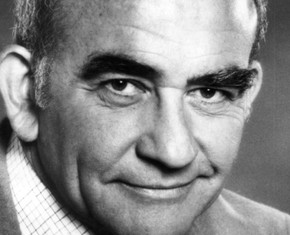The views expressed in our content reflect individual perspectives and do not represent the authoritative views of the Baha'i Faith.
If we have a soul, and that soul comprises our true reality, why do we need a body? Why is our physical experience even necessary?
Assuming, then, that we can accept even our negative experiences as part of the divine plan for educating us, we are still left with a final question that encompasses the whole process: Why is a physical existence necessary in the first place? For even if the process of spiritual development and enlightenment works as planned, why couldn’t there not be a simpler, easier, less painful method of accomplishing the same task? If God is omnipotent and can create us in whatever way He wishes, why did He not create us already spiritualized, already in a state of understanding?
If the question seems presumptuous, it is not. Baha’u’llah deals with this very issue when he explains that God could have made things simpler, but his purpose is to force us to search independently, to choose for ourselves the path that is the source of our advancement:
He Who is the Day Spring of Truth is, no doubt, fully capable of rescuing from such remoteness wayward souls and of causing them to draw nigh unto His court and attain His Presence. “If God had pleased He had surely made all men one people.” His purpose, however, is to enable the pure in spirit and the detached in heart to ascend, by virtue of their own innate powers, unto the shores of the Most Great Ocean, that thereby they who seek the Beauty of the All-Glorious may be distinguished and separated from the wayward and perverse. – Baha’u’llah, Gleanings from the Writings of Baha’u’llah, p. 71.
To create already spiritualized beings would be to produce automatons incapable of progressing any further on their own, or of appreciating what they are because they would not have discovered it for themselves, nor would they have experienced any alternative experience with which to compare their relationship with God. Furthermore, were spiritual reality and its laws more obvious to us on this plane of existence, we might not develop our sense of perception, since the meaning of reality would be obvious to all alike.
By veiling spiritual reality in a metaphorical physical garb, and thus removing the essential reality of things one step from the immediate vision of humankind, God has enabled us to have every opportunity to attain spiritual knowledge together with the bounty of experiencing a personal recognition of reality.
At the heart of this exercise, of course, is the gradual discovery of the distinction between illusion and reality. We experience this transition as we emerge from darkness into light, from ignorance into the realm of understanding, and realize that it will provide us with more than a few moments of elation and reward. This experience will provide us with the spiritual impetus to strive for continued progress and the tools of discernment with which to carry out the objective of our spiritual evolution.
But as we will see more completely in the next few essays in this series, the most important justification for having to learn initially about spiritual reality indirectly or periscopically through physical metaphors is that we must each learn from our physical classroom the method of maintaining progress in our existence beyond this world.
Were there only two levels of existence in the next world, a heaven for those who succeed and a hell for those who fail, or even if there were various strata within these categories, possibly God could have created man sufficiently spiritualized for a heavenly existence, and we would not have lost much.
But the Baha’i teachings reveal that there is no static existence in this world or the next, no relegation of the soul to an eternal abode within some fixed category of existence. Whether in this world or in the next, we are constantly changing. The point of transition and transformation we call death does not terminate the process of our spiritual development, nor does it end our need to utilize the spiritual faculties we have developed in this life.
The distinction between the Baha’i view of the afterlife and the traditional conceptions maintained by other belief systems is, as we will see, a critical one. Were it our destiny to attain one static or changeless state of being, one explicit level of growth (or salvation), such development could conceivably be accomplished without this metaphorical classroom, or else with an exacting canon of rules and guidelines to robotically program us for growth. But because it is our nature as human souls, whether in this life or in the next, to be continually evolving, what may have been adequate guidance for us at one time in our development may be totally inadequate for another.
Furthermore, since no two people are exactly the same or have the same experiences, each individual’s plan of spiritual development must be distinctly tailored to the conditions of his or her soul. Therefore, what we need to develop are faculties of discernment and judgment, so that each of us has a degree of spiritual autonomy, coupled with the desire to foster our own spiritual advancement, together with the tools to carry out that progress. We must be capable of choosing on a daily or even minute-by-minute basis that point of balance or moderation—the Aristotelian “golden mean” between the extremes. We must choose the courage that lies between foolhardiness and cowardice, the joy that lies between insipid frivolity and oppressive seriousness, the wise guidance that lies between calculating judiciousness and mindless permissiveness.
The objective of our education, then, is not blind adherence to dogma. Baha’u’llah admonishes us to evaluate our progress daily and, with each new assessment, decide what will be a progressive goal for us. Yet this objective must not be so far beyond our grasp that we will frustrate our own determination to strive, and certainly considering what lessons we can extract from negative and painful experiences is an integral and vital part of this daily exercise of self-evaluation.
No handbook on personal conduct could do this for us because no code of conduct, however exacting, could take into account the myriad exigencies of each individual life. Perhaps it is for this reason that Baha’u’llah revealed relatively few laws regarding personal behavior. Instead, he mandated a course of conduct that stresses the development of the faculty of discernment for each individual. Likewise, he ordained decision-making institutions for human society, institutions with the capacity to consider all the variables in a given situation and to make appropriate decisions about a course of action based on those considerations rather than on a canon of law.
















Comments
Sign in or create an account
Continue with Googleor